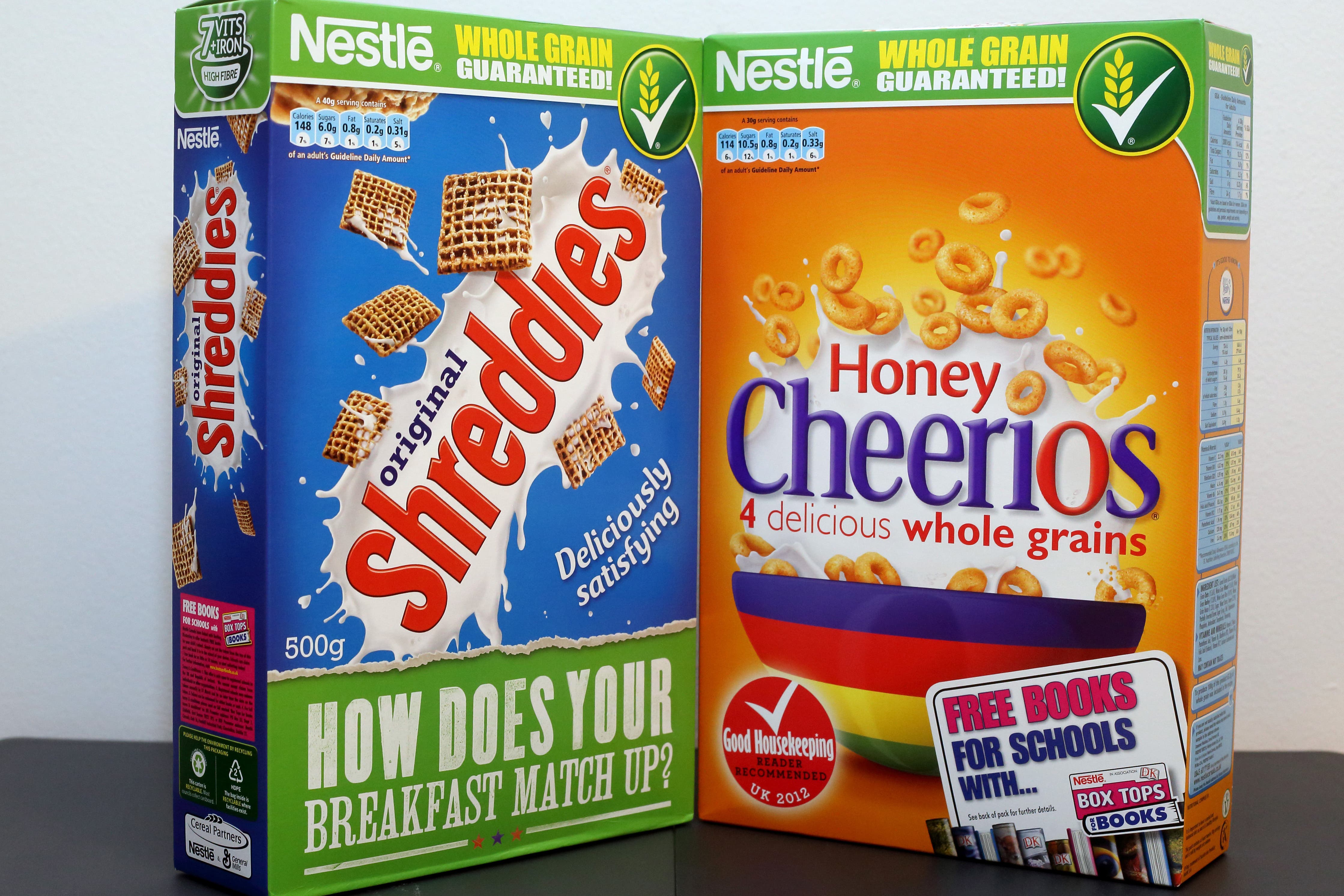Sugary cereals and yoghurts must remove child-friendly packaging – health group
Research found Lidl, Aldi and Nestle products with such packaging had the highest average sugar levels.

Breakfast cereals and yoghurts containing high amounts of sugar should remove any packaging that appeals to children, a health group has said.
Action on Sugar called for the removal of such packaging on products graded as high or medium for sugars, salt or saturated fat, based on the Department for Health’s nutrition guidelines.
Research by the group, based at Queen Mary University of London, compared cereals and yoghurts offered by different companies in the UK.
It found 47% of cereals and 65% of yogurts contained a third of the maximum sugar recommendation for a four to six-year-old per 100g.
Of these, products by supermarket chains Lidl and Aldi and international brand Nestle had the highest average sugar levels with packaging targeted at children.
The packaging includes cartoon characters, animations, vibrant colours and familiar characters intentionally designed to attract the attention of a child.
By contrast, healthier products tend to be sold in more plain packaging targeted towards adults.
Only nine cereals and six yogurts in the research were found low in sugars.
Lidl announced in 2020 that it would remove cartoon characters from all its own-brand cereal packaging in Britain.
Breakfast cereals and yoghurts saw significant reductions in sugar levels between 2015 and 2020, at 14.9% and 13.5% respectively.
But the Sugar Reduction Programme announced in the Government’s obesity plan in 2016 set a target of 20% in that timeframe.
Dr Kawther Hashem, campaign lead at Action on Sugar, said: “It’s ludicrous that whilst breakfast cereals and yogurts celebrate the largest reductions in sugars during the Sugar Reduction Programme, those same products with child-appealing packaging still have excessive amounts of sugars, unsuitable for regular intake by children.
“Given the soaring numbers of under-18s suffering weight-related health problems and tooth decay being the leading cause of child hospitalisation, now is the time for companies to be forced to remove child-appealing packaging from products that are misleading parents and making our children unhealthy and sick.”
A spokesperson for Nestle said: “We are committed to developing food and drink products that are tasty, nutritious and more sustainable. We offer a broad portfolio of cereals and yoghurts to meet consumer demand and ensure there is an option to suit everybody.
“Since 2003, Nestle Cereals embarked on a significant and consistent work of reformulation meaning 84% of the portfolio is now classed as not high in fat, salt and sugar (non-HFSS) according to the UK Government’s nutrient profiling model.
“That is 18 products within our cereal portfolio in the UK that are non-HFSS and contain no red traffic lights. Our yoghurt portfolio has also made significant steps in reformulation and has seen a reduction of 20 per cent of sugar across our products.”
Aldi said it was “committed to reducing sugar in key areas that lead to children’s sugar intake as part of its work to tackle obesity among children”.
The company added that defining packaging with vibrant colours as appealing to children was “misleading” and had led to “skewed results”.
Bookmark popover
Removed from bookmarks